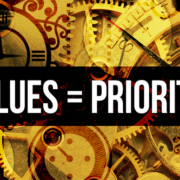Debra Russell has an article featured on VIKTRE.com…
In “Adjusting Your Time Management for Change – Part One,” I explained the concept of building a Master Schedule using time blocks by category. The premise was that you decide in advance how much time you’ll devote to each category per week and when that will happen. Then, you adjust the week’s schedule to reflect your master schedule by trading time slots, rather than just dropping things out.
So, where does your task management fit inside of this system? In order to look at that, we need to look more specifically at how best to handle, organize and think about your tasks and then fit them inside your calendar.
Your WHY
First, tasks are in essence, action steps. As such, every task should be associated with a goal or project – a specific, clearly defined outcome. This is your “why.” Even something as mundane as doing your laundry can be associated with a goal. For example the goal could be, “Fulfilling my role as a role model by projecting a professional image.” In order to do that, you need clean clothes, right?
READ MORE



